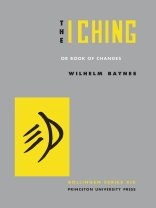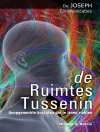The bestselling English translation of the ancient classic of Chinese divination that has inspired millions with its timeless insights into the changing nature of all existence
The I Ching, or Book of Changes, has exerted a living influence in China for thousands of years. Today, it continues to enrich the lives of readers around the world. First set down in the dawn of history as a book of oracles, it grew into a book of wisdom with the inclusion of commentaries on its oracular pronouncements, eventually becoming one of the Five Classics of Confucianism and providing a common source for both Confucianist and Taoist philosophy. This edition of the I Ching is the most authoritative and complete translation available, preserving the spirit of the ancient text while providing a vital key for anyone who seeks to live harmoniously with the immutable law of change.
The book presents the sixty-four hexagrams of the I Ching along with their texts and interpretations in a format especially designed for easy reference. Unlike many editions of the I Ching, it also features the Ten Wings, supplemental writings traditionally ascribed to Confucius that provide indispensable insights into the symbolic structure of the hexagrams and their place in a cosmology where change is the only constant.
With an illuminating foreword by C. G. Jung and an informative introduction by Richard Wilhelm, this beautiful edition of the I Ching shares the essence of wisdom and a true understanding of life.
About the author
C. G. Jung (1875–1961) was the founder of analytical psychology and one of the great intellectual figures of the twentieth century. Richard Wilhelm (1873–1930) was a sinologist, theologian, and missionary who translated many ancient Chinese works and wrote several books on Chinese philosophy and civilization. His acclaimed German translation of the I Ching from Chinese served as the basis for this Bollingen edition. Hellmut Wilhelm (1905–1990) was a scholar of Chinese literature and history and a world-renowned expert on the I Ching. He was the son of Richard Wilhelm. Cary F. Baynes (1883–1977) was a translator and Jungian psychologist.












